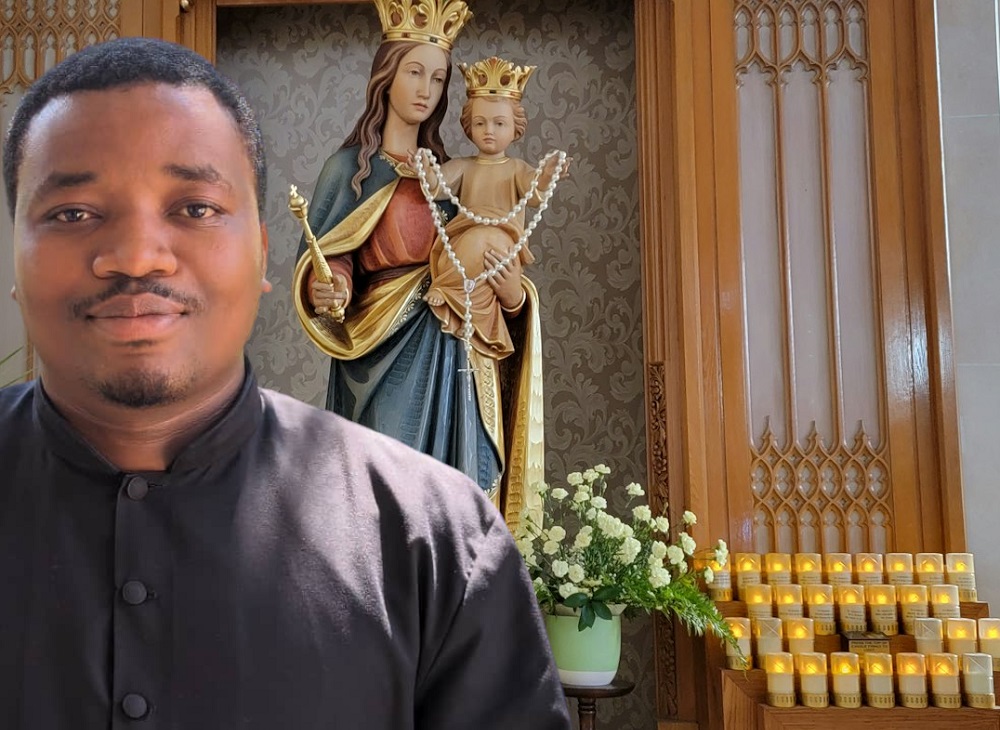By Sem. Robert Bigabwarugaba
Many non-Catholics are so interested in what the Catholic Church teaches about certain things; that they want to know what the Church says. The effort put into trying to know the mind of the Church to best criticize and discredit her goes a long way to tell me how strong and important the Mother Church is. If what you say or do means nothing to those around you, then it shows how un-influential you are. That is the reason I feel so encouraged, and my Catholic faith strengthened.
The holy rosary of the Blessed Virgin Mary is one of the Catholic devotions looked down upon by some. They blindly argue that the rosary is not biblical. Yes, the rosary may not have been mentioned in the bible as they claim, but sure, the bible is in the rosary. I repeat without any fear of contradiction; the bible is in the rosary. Yes, in the holy rosary is the summary of the bible; he who daily prays the twenty decades of the rosary reads the whole bible daily.
Don’t get me wrong; this is not to discourage the reading of the written word. As a Christian and as a priest, I encourage all to get a copy of the bible and read it daily. I’m certainly not discouraging anyone from the daily reading of the written word but, to put a simple message across, the bible is in the rosary.
The Lord’s Prayer, which begins every decade, is pulled directly from the Gospel of Matthew (Matt 6:9-13).
The Hail Mary also has a strong basis in Scripture. Its first half is a combination of two scriptural verses from the Gospel of Luke. Hail, Mary, full of grace. The Lord is with you! the angel Gabriel greets Mary in the first chapter of St. Luke’s Gospel (Luke 1:28). Blessed are you among women, and blessed is the fruit of your womb, proclaims Elizabeth in Luke’s account of the Visitation (Luke 1:42).
The second half of the Hail Mary (appended in the 15th century) is not as directly scriptural, but draws from scriptural themes and verses. Holy Mary, mother of God relates to Elizabeth’s greeting of Mary as “the mother of my Lord” (Luke 1:43). Mary is the mother of Jesus, the incarnate second person of the Trinity. She has, thus, been honoured by the Church as the Theotokos (God-bearer) since the 3rd century.
The title of Mother of God was confirmed by the Council of Ephesus in 431 AD. The final petition of the Hail Mary, pray for us sinners, now and at the hour of our death, draws on the Letter of James which admonishes Christians to pray for each other and proclaims that the prayers of a righteous man (or woman) have great power in its effects. (Jas 5:16). Who could be more righteous among men and women than the one seen fit by the Father to become Mother of God?
Finally, the mysteries of the Rosary follow the life of Christ as depicted by the Gospels. As we meditate on these mysteries, we are reminded of the Evangelists’ accounts of the birth, ministry, Passion and Resurrection of Jesus Christ. A popular practice is to read short passages connected with the mystery before each decade or, even, each Hail Mary. When we meditate on the mysteries, we dwell deeply on the Gospels and are led to a deeper understanding of the Scriptures by our recitation of the Rosary.
The Rosary acts as a focal point for these interactions because it represents the Church’s understanding of theology, which makes use of both Scripture and Tradition (CCC 82). When we pray the Rosary we act upon, among other things, our belief in Mary’s intercessory power, the Church’s power to grant indulgences, and the various Marian apparitions that call for increased devotion to the Rosary.
None of these beliefs contradict Scripture, but they are not explicitly referred to either. These beliefs rest firmly on the Gospels but build upon that scriptural foundation to a fuller understanding of the Christian faith. Difficulties with the Rosary are often a manifestation of a reticence to connect scriptural evidence with the Tradition that undergirds the Rosary.
One tradition that draws us close to Christ is devotion to his mother. Devotion to the Blessed Mother always begins and ends with Christ. Every dogmatic definition related to Mary has been a defense against Christological errors. The Rosary, though intensely Marian, is Christological to its core. Through the Rosary, Mary, the best of mothers, leads us to Jesus. When we pray the Rosary for Mary’s intercession, we ask her to obtain for us grace from her son, Jesus Christ. Jesus, the most perfect of sons, always listens with love to his beloved mother.
The writer is Sem Robert Bigabwarugaba (robertbigabwarugaba@gmail.com)
Send us your story or opinion on: dailyexpressug@gmail.com. You can also follow Daily Express on WhatsApp for all the latest news and updates.





